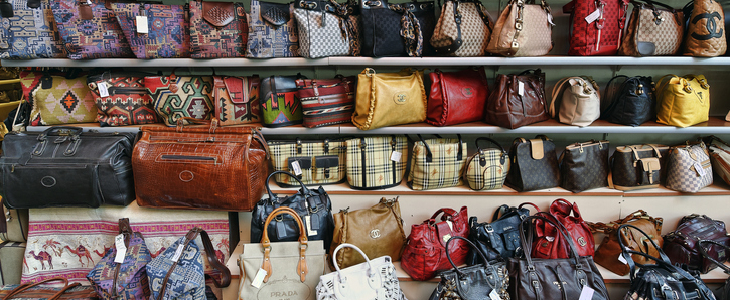In the bustling world of retail, the allure of designer dupes is hard to ignore. These products, echoing the designs of high-end fashion brands, offer a taste of luxury at a fraction of the price. However, for retailers, navigating the sale of these items isn’t always straightforward. Understanding the fine line between inspiration and infringement is key, as the legal landscape surrounding designer dupes can be as intricate as the designs themselves.
What Exactly Are Designer Dupes?
Designer dupes, often found in the retail landscape, are items that mimic the style and appearance of luxury designer products but are sold at significantly lower prices. These products closely resemble high-end fashion pieces in design, color scheme, and overall aesthetic, yet they do not carry the designer brand name or exact trademarked features.
The appeal of designer dupes lies in their ability to offer consumers a taste of luxury fashion trends without the hefty price tag associated with authentic designer goods. Retailers and consumers alike must recognize that while designer dupes are not counterfeit products that illegally replicate brand logos and trademarks, they still exist in a complex legal gray area, hovering between homage and potential infringement.
The Legal Landscape
Navigating the legal landscape around designer dupes can be complex for retailers. Copyright and trademark laws are central in this realm, designed to protect the original work of designers and brands. However, the distinction between a direct copy and a legally permissible inspiration can be nuanced. These laws aim to prevent consumer confusion and protect the intellectual property rights of designers, yet they leave room for interpretation, especially in the case of items that resemble but do not directly copy designer products.
For retailers, this means treading carefully. Selling items that are too similar to protected designs can lead to legal challenges, including infringement lawsuits. On the other hand, there is legal space for selling items inspired by designer trends, provided they do not infringe on specific copyrighted elements or trademarks. Retailers must stay informed and vigilant, ensuring their products don’t cross the fine line into infringement to avoid potential legal repercussions.
Risks and Consequences
Retailers dealing in designer dupes face significant risks if they inadvertently cross into the realm of infringement. Selling items that closely mimic protected designs can lead to legal battles, with potential consequences including costly lawsuits, damage to reputation, and financial penalties. The line between a permissible dupe and an infringing product is often thin and easily crossed, making it a risky venture without careful legal consideration. Furthermore, there’s a risk of eroding consumer trust if a retailer is perceived as selling counterfeit or unethical products. These legal and reputational risks underscore the importance of a cautious approach in dealing with designer dupes, ensuring that all products respect intellectual property laws and maintain the integrity of the retail brand.
Navigating the Gray Area
Navigating the gray area of designer dupes requires a balanced approach, blending legal awareness with ethical retail practices. Retailers should conduct thorough research to understand the boundaries of copyright and trademark laws, ensuring their products do not infringe on designer rights. It’s advisable to seek legal counsel for guidance on specific products, especially when the similarity to designer items raises concerns. Additionally, maintaining transparency with customers about the nature of the products being sold builds trust and credibility. By staying informed, seeking expert advice, and prioritizing ethical selling, retailers can successfully navigate this challenging aspect of the fashion industry, offering trendy yet legally compliant products to their customers.
How Gearhart Law Can Help
At Gearhart Law, we understand the complexities of intellectual property in the fashion industry. Our team offers tailored legal guidance to help you navigate the intricacies of selling designer dupes. We invite you to reach out to us for professional advice and support to ensure your retail practices are both trendy and compliant. Contact us to safeguard your business.


